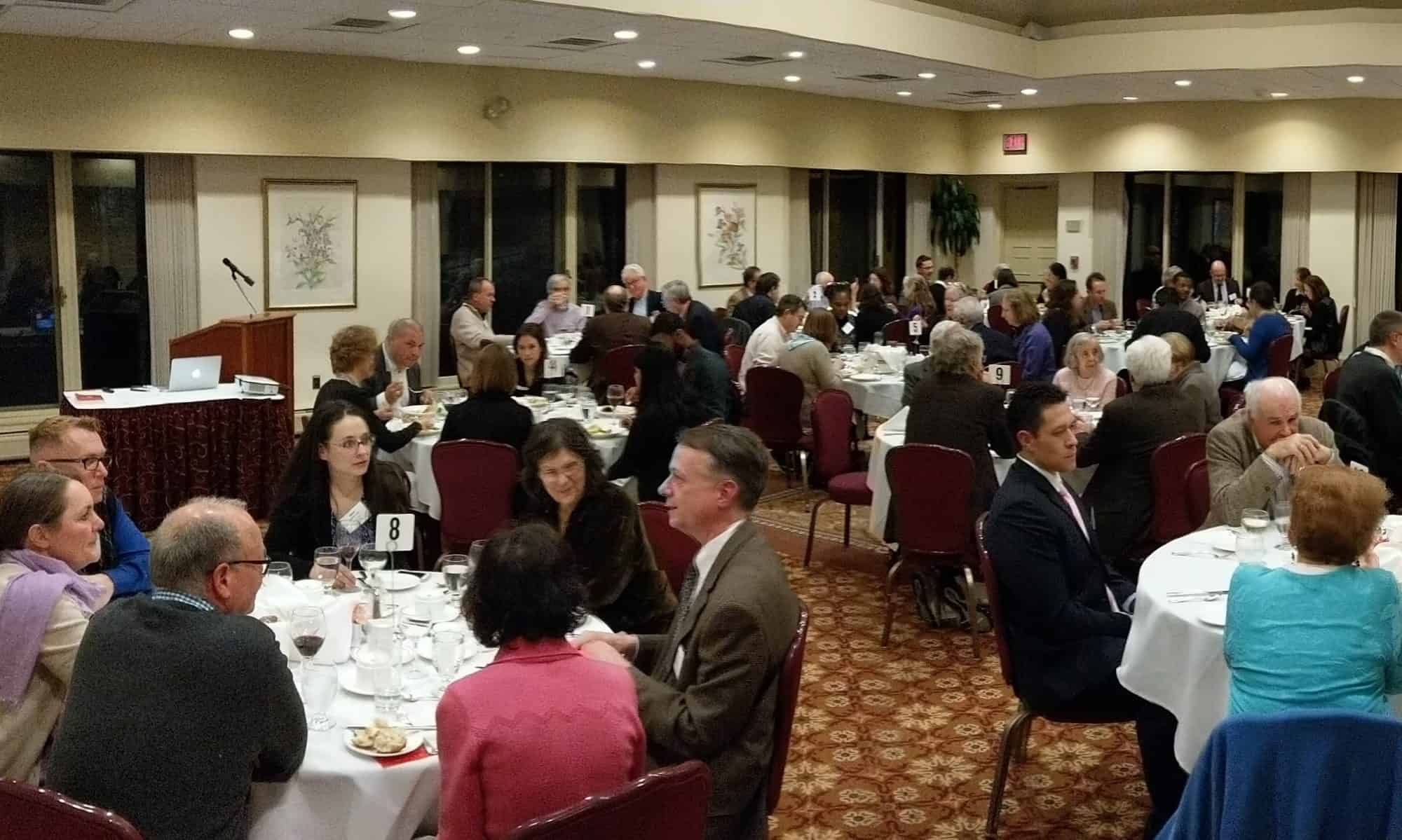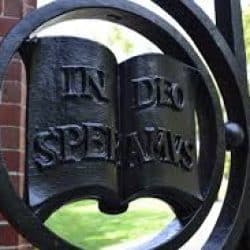What exactly happens at these events?
As described in the About page, this event begins at 6pm in the lobby area of the faculty where drinks and appetizers are served while people arrive, obtain their name tag (with table assignment), connect with colleagues and meet new people. By 6:30pm everyone takes their seat and listens to the opening remarks of the roundtable coordinator. Then the presenter(s) begin their talk, lasting about 20 minutes. By 7pm, participants are eating dinner (and then dessert) while discussing what was shared by the presenter(s). At 8pm, there’s a brief question and answer time with the presenter(s) and the participants. And around 8:20pm the coordinator will close the event with a few remarks before officially ending the event by 8:30pm. People are then free to leave or stay to continue conversing with other participants and/or the presenter(s).
is it okay if I do not know anyone?
Yes, that’s perfectly fine–however, most likely you will recognize someone. Plus, part of the benefits of the roundtable is meeting new people! This is part of the reason the tables are pre-assigned.
Are these events really free?
Yes–at least, for the participants there is no financial cost. Though, that may change in the future. These events are funded by other people and organizations, most notably the John Templeton Foundation.
Can I bring a guest?
Contact the local coordinator to inquire about your guest. Usually this can be accommodated.
When did these events start?
The first Providence Roundtable event was in Fall 2014. Since then, there has been 1-2 events each semester. These faculty dinner discussion seminars are modeled from the highly successful Cambridge Roundtable in Boston, which began in 2009.
Who attends these events?
Mostly faculty from Brown University, but every event has seen a number of faculty from nearby institutions such as Providence College, University of Rhode Island, Johnson & Wales, Rhode Island College, Bridgewater State University, Rhode Island School of Design, and others. Additionally, there are usually several local clergy in attendance, as well as local alumni, university researchers, department administrators, business managers, and community leaders. What’s more, the educational, religious, and ethnic background of the participants reflects the diversity of the university community.

